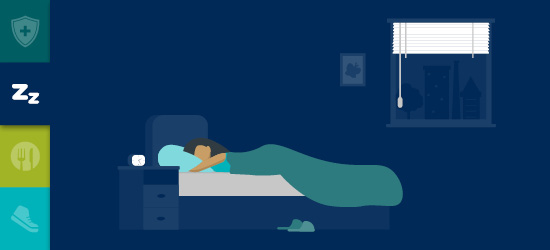
Archived Story: This article is part of our newsletter archives. It has
been preserved for reference, but the information may no longer be current.
Staying rested helps you fight the coronavirus (and any infection) more effectively. Try incorporating these tips to get better sleep.
How to sleep better
- Create a relaxation ritual. Take some time to wind down before bed with your own relaxation ritual. Find what works the best for you; journal, meditate, read a book, listen to music or do some gentle stretching.
- Get comfortable. For the best sleep environment, choose quiet and dark. You can filter out unwanted light with blackout curtains or a sleep mask to go over your eyes.
- Use your bed for two things only: sleep and sex. Don’t watch TV, eat, check your phone or study in bed. Using your bed just for sleep trains your brain to think of your bed as a sleep zone. The more you limit other activities in bed, the easier it will be to fall asleep.
What to avoid for better sleep
- Avoid naps. Naps are like snacks. Just like too many snacks spoil your dinner, napping makes it harder to sleep at night.
- Avoid caffeine. Some people are more sensitive to caffeine while others are less so. A good rule of thumb is to avoid caffeine after you eat lunch.
- Avoid strenuous exercise four hours before bed. When you exercise, your body temperature gets higher. That increased temperature signals to your body that you need to be awake.
- Avoid all screens one hour before bed. The blue light from screens tells your body to decrease melatonin, the sleep chemical, making it harder to fall asleep.
Sleep helps improve your overall health and supports your immune system. If you feel sick, remember that the University Health Center is open and ready to provide you with health care. Make an appointment at 402.472.5000. Telehealth services are also available.
More details at: https://health.unl.edu